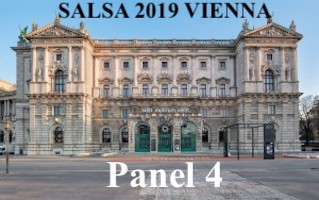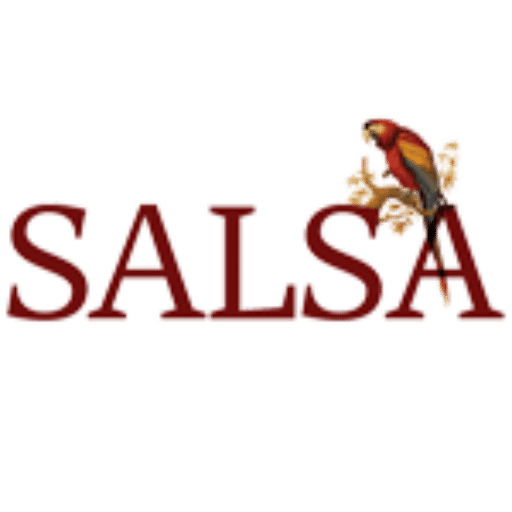
PANEL 04: The Chibchan Peoples
PANEL 04: The Chibchan Peoples
SALSA XII Sesquiannual Conference – Vienna, 2019
 Organizers:
Organizers:
Manuel Lizarralde, Connecticut College, USA
Juan Camilo Niño Vargas, Universidad de los Andes, Colombia
Stephen Beckerman, Universidad de los Andes, Colombia
Chair: Juan Camilo Niño Vargas
Abstract: At contact, the Chibchan speaking peoples inhabited a compact zone stretching from southeastern Central America to far northwestern South America. Although the linguistic and genetic similarity of these peoples is well documented, they manifested considerable differences in other anthropological dimensions. They inhabited both montane and lowland environments. They ranged in social organization from robustly egalitarian tribal groups to the paramount chiefdom (or perhaps proto-state) of the Muiscas, the most accomplished gold workers in the New World. Their kin terminological systems were diverse, comprising Hawaiian, Dravidian and Iroquois terminologies. Their religious practices ranged from an egalitarian shamanism to a specialized and highly trained priesthood. Although some traits have been suggested as common to all or almost all the Chibchan peoples—e.g. an absence of internal warfare, a set of cosmological principles that contrasted with those of the surrounding peoples—it remains in dispute as to whether one can speak of a common core of Chibchan culture. In the last decade a good deal of research has been done among the twenty odd surviving Chibchan peoples, and this work is continuing. This symposium brings together Chibchan researchers of various orientations—ethnographers, ethno-historians, linguists, geneticists, archaeologists—to share their findings and cross-fertilize their research programs. The papers to be presented here offer ethnographic, archaeological, linguistic and genetic data intended to address the question of just how similar the Chibchan peoples were and are, an inquiry that addresses such important issues as cultural inheritance and the origins and maintenance of ethnicity.
Panel Schedule
Friday, 28 June, KHM Bassano Saal |
||
Session 1 (note that this session begins 10 min earlier and ends 10 minutes later than the normal time slot) |
||
| 14:20 | 14:30 | Introduction |
| Biological Anthropology | ||
| 14:30 | 14:50 | Norberto Francisco Baldi. Mitochondrial diversity of six Honduran indigenous populations: Exploring the genetic boundaries of Chibchan Speaking populations. |
| 14:50 | 15:10 | Humberto Ossa Reyes. Analysis of admixture in Native American populations from Colombia. |
| 15:10 | 15:25 | Discussion |
| Archaeology and History | ||
| 15:25 | 15:45 | John Hoopes. “Diffuse Unity”, Chibchan Archaeology, and the Isthmo-Colombian Area: Assessing the Utility of Provisional Concepts. |
| 15:45 | 16:05 | Scott Palumbo / Keilyn Rodríguez-Sánchez. The Historic and Ethnographic Use of Knotted String Records in southern Central America. |
| 16:05 | 16:20 | Discussion |
Session 2 |
||
| 16:40 | 16:45 | Introduction |
| Comparative Linguistics | ||
| 16:45 | 17:05 | Matthias Pache. Linguistic diversity within Chibchan. |
| 17:05 | 17:25 | Natalia Bermudez. An interdisciplinary empirical reconstruction of Chibchan spirituality. |
| 17:25 | 17:45 | Discussion |
Saturday, 29 June, KHM Bassano Saal |
||
Session 3 |
||
| 11:00 | 11:05 | Introduction |
| Comparative Ethnology | ||
| 11:05 | 11:25 | Marcos Guevara Berger (remote connection). Estudio comparativo de los sistemas de parentesco de los pueblos chibchenses, líneas hipotéticas sobre su evolución. |
| 11:25 | 11:45 | Stephen Beckerman. Semi-sedentism among Chibchan peoples. |
| 11:45 | 12:05 | Juan Camilo Niño Vargas. La cosecha de animales: la agricultura como marco para manejo del entorno entre los Chibchas. |
| 12:05 | 12:40 | Discussion |
Session 4 |
||
| 14:30 | 14:35 | Introduction |
| Ethnographical Studies | ||
| 14:35 | 14:55 | Mònica Martínez Mauri. A common core of Chibchan culture? Internal organisation and conflict management among the Guna (Panama). |
| 14:55 | 15:15 | María del Rosario Ferro. Tracing ancestral connections: walking and thinking through Donald Tayler’s writing in Ika territory in the Sierra Nevada de Santa Marta. |
| 15:15 | 15:35 | Jeffrey David Ehrenreich / Judy Kempf. The Awá-Coaiquer of the Northwest Littoral Region of Ecuador: Environment, Dissembling, Ritual and the Maintenance of Ethnic Identity. |
| 15.35 | 16.10 | Discussion |

